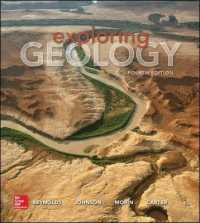- ホーム
- > 洋書
- > 英文書
- > Science / Mathematics
Full Description
The apparently contradictory issues of poverty reduction and sustainable development can be jointly addressed. This book shows how ecological science and tools can be applied to address major development challenges associated with rural poverty.







